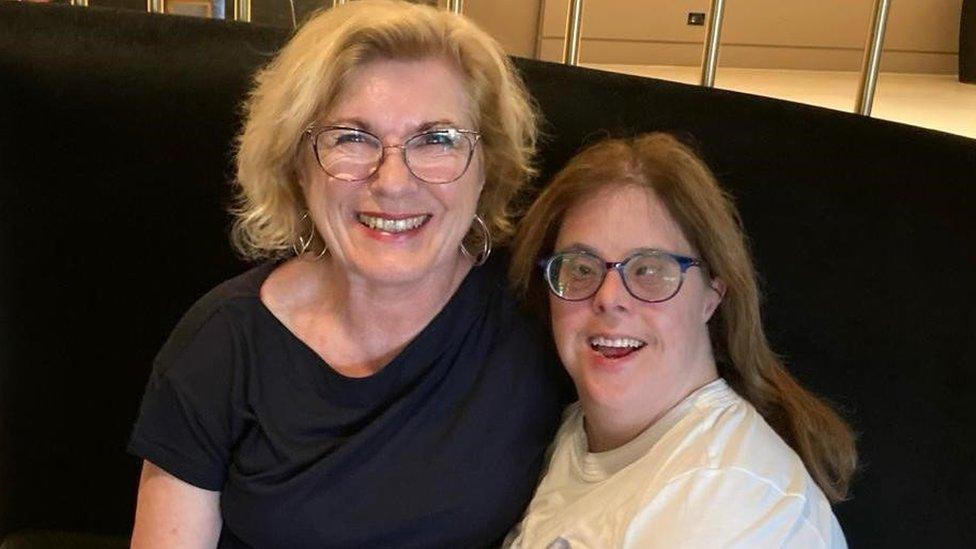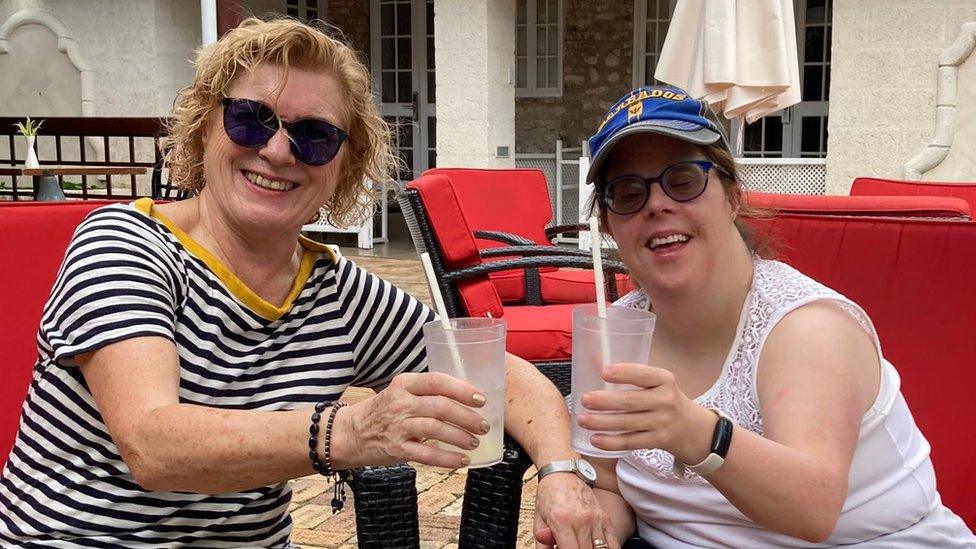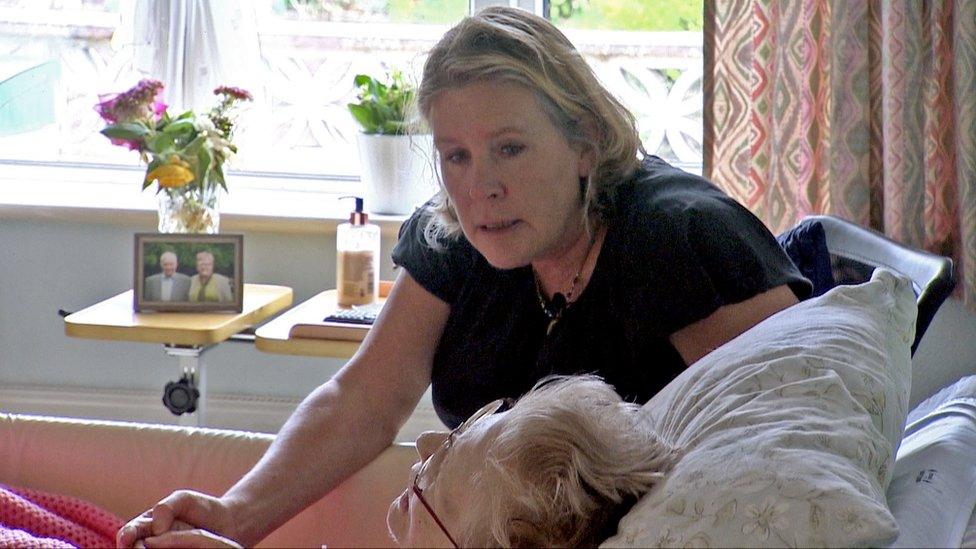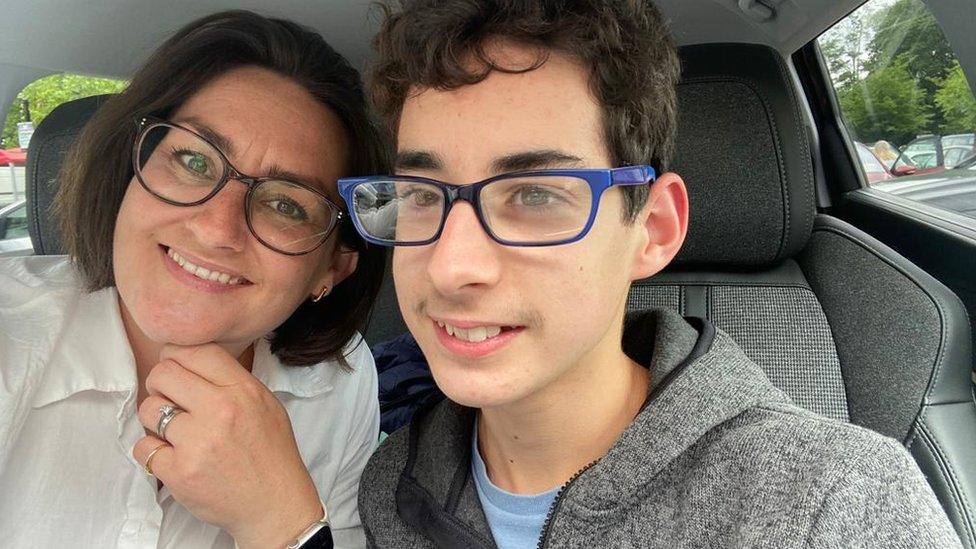Mother, 70, makes plea for unpaid carers to be recognised
- Published

Liz Naylor has been caring for her daughter Gabrielle for more than 46 years
A retired woman who has looked after her disabled daughter since she was born has described the pressures of being an unpaid carer in her 70s.
A new report shows 12,000 people a day become unpaid carers in the UK.
Liz Naylor, 70, from Sheffield, said caring for her 46-year-old daughter had been tough and she needed more help for respite care.
"The next 20 years are slightly frightening as we [she and her husband] both reach our old age," she said.
"I spend ages making plans and thinking: 'Well, I'm not going to be here to make sure it's all carried out when the inevitable happens'."
Holiday seizure
Mrs Naylor's daughter Gabrielle, who has Down's Syndrome, a heart defect and epilepsy, requires regular care that has been given to her by her parents ever since she was born.
"A few weeks ago we were on holiday, all three of us, but Gabrielle had an epileptic fit and then a stomach bug. It puts a dampener on things," she said.
A "lack of spontaneity" caused by the need for the regular care or hospital appointments, had made life difficult for the couple, Mrs Naylor added.
"Rob and I have been retired for a long time. We say: 'let's go and do this. Oh wait, we can't'.
An ageing population has seen growing social care needs and more reliance on unpaid carers, said the report from the University of Sheffield, external, in collaboration with charity Carers UK.

Liz Naylor said weekend respite care would help give her and her husband a break
Mrs Naylor said occasional weekend respite care would allow them to have some independence, but she appreciated charities were financially strapped.
"I want recognition for all carers from society and government that we're out there doing a damned good job that would be very expensive if we didn't do it," she added.
Carers UK said it was using the research to call for a step change in the way carers were identified across society to ensure they got the practical or financial support they needed.
'Many miss out'
Chief executive Helen Walker said it was no surprise millions of people became unpaid carers every year because of an ageing population.
"Most carers would call themselves a loving partner, parent or child, and do not immediately identify their caring role - meaning many miss out on practical support as a result," she said.
Mrs Naylor said she would continue to care for Gabrielle until it started to "look difficult".
She has already started looking at what they might do when they can no longer care for her, but has her reservations.
"You have to throw money at it. What if you haven't got the money to, though? What if you can't quite trust the people? That's a worry for me. Will they do it as well as I do?"

Follow BBC Yorkshire on Facebook, external, Twitter, external and Instagram, external. Send your story ideas to yorkslincs.news@bbc.co.uk, external.
Related topics
- Published11 October 2022

- Published9 June 2022
